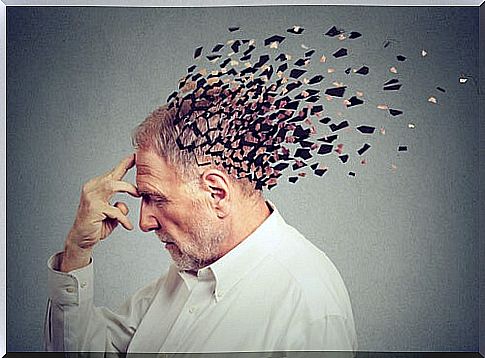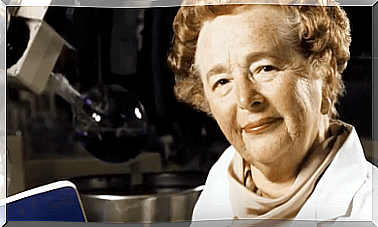Oblivion And Other Corners Of Memory

It happens to all of us. We try to remember a name, an event or a place and there is no way for it to come to our mind. We look for strategies trying to associate it with something or we even go to ask for the favors of some other saint … and nothing . Where do the lost memories go? Why does oblivion appear?
Did you know that to live, we must forget? Forgetting is an intrinsic and inseparable function of memory. In the next few lines we will explain it to you.
Does oblivion have a function?
Unquestionably yes. Forgetfulness is something natural and essential for memory and, with it, intelligence, to function properly. Our brain is a complex machine that uses the law of minimum energy expenditure for its operation.
If we were not able to forget the details considered insignificant or the unnecessary information of our perceptions, we could not get to establish general concepts about what surrounds us. We would be continually burdened with data from our senses. On the other hand, we would be blocked by the overload of stimuli and information.

This also means that memory is selective, and that we tend to remember those events that for one reason or another have a greater relevance in our lives or that at a given moment impacted us. For the most psychoanalytic, forgetting also has the function of displacing ungrateful or traumatic memories, allowing the psyche to function normally.
Theories about forgetting
Since forgetting can condition our life at any given moment, it is a phenomenon that has been scientifically studied since the birth of psychology. In fact, the first studies date back to the end of the 19th century, when the psychologist Ebbinghaus investigated the subject, concluding that people function with a “forgetting curve”.
According to this curve, forgetting is much greater and faster in the first hours after the fact to remember. What we manage to save up to there will remain constant for longer. Then it will decrease very slowly until remembering only details or complete forgetfulness.
Cognitive theories speak that forgetting occurs because the trace left by a memory gradually weakens if we do not make use of it, and may eventually disappear. It is also said that forgetting is produced by interference of some memories with others. That is, when a new memory tries to make a hole in our memory, it is blocked or distorted by previous learning.
And returning to the more Freudian psychoanalysis, forgetting occurs through the repression of memory, as a defense mechanism against undesirable events. However, that repressed information can come back in the form of unintended slips, dreams, or other manifestations.
Causes of forgetfulness
So far we have talked about “everyday” forgetting, the one that affects us on a day-to-day basis. There are forms of forgetting, however more ferocious, that can prevent the person from doing his ordinary life. We speak in those cases of the following.

- Amnesia : It is the total or partial loss of memory caused by a physical injury, by the experience of a traumatic event or the use of drugs. It can last from a few minutes to several years.
- Dissociative states : Mental processes are separated from the physical body. So while it lasts, we have no way of remembering what happened.
- Alzheimer’s disease : Caused by neuronal degeneration, this disease leads to a rapidly progressive memory loss, coupled with global physical and mental deterioration. As stated by Arnedo, Bebibre and Triviño (2013), Alzheimer’s can affect different aspects: memory, language, spatio-temporal disorientation, apraxia, agnosia and abstract and logical reasoning. The authors state that “the first signs of deterioration in Alzheimer’s disease are detected in the medial temporal lobe and affect the entorhinal cortex, the parahippocampal gyrus and the hippocampus . “
- Korsakoff syndrome : It is a syndrome that chronic alcoholics often suffer from. Memory disorders, repetitions of a story told a thousand times, trouble remembering recent events. As stated by the team of Irelis González (2017) in their article “Korsakoff’s psychosis, about an interesting case”: “it is one of the most frequent causes of amnesia. It is characterized by mental confusion, recent memory impairment, and collusion. It is due to the deficiency of thiamine or vitamin B1 “.
In short, forgetting is a phenomenon as useful as it is hateful, although there are always tricks to deceive it and improve memory. Have you experienced oblivion on what occasions? What things do you forget most easily?









